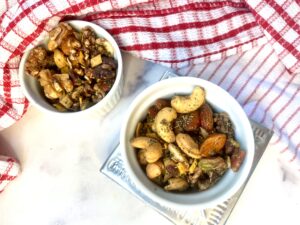
Navigating GERD and Diet: Debunking Food Myths and Finding Balance
Living with gastroesophageal reflux disease (GERD) often means treading through a maze of conflicting dietary advice. Online, you might encounter a whirlwind of opinions on what’s permissible and what’s not for managing acid reflux. In this guide, we’ll delve into some common questions regarding GERD and diet, aiming to shed light on navigating this complex landscape.
Lemon Water: Friend or Foe?
The debate over lemon water for GERD often leaves many scratching their heads. While touted as a health elixir by some, others find it triggers or worsens their acid reflux symptoms.
For those willing to give it a try, moderation is key. Limit the lemon juice to just 1 tablespoon per 8 ounces of water, or simply add a small wedge with a gentle squeeze. And remember, sip slowly. This cautious approach might help gauge its impact on your system.
Meat Dilemma: To Eat or Not to Eat?
When it comes to meat, especially fatty red cuts, caution is advisable for GERD sufferers. High-fat content can relax the lower esophageal sphincter, paving the way for acid reflux.
Opt for leaner cuts, and practice portion control. Smaller servings are often better tolerated. Consider healthier cooking methods like baking, light grilling, or broiling instead of frying. Choosing grass-fed or organic options might also be gentler on your system. Incorporating meat into a well-balanced diet rich in vegetables may help mitigate flare-ups.
Remember, individual responses to foods vary. Keeping a food diary can help pinpoint your triggers and tolerance levels.
The Sauce Conundrum: Balancing Flavor and GERD
Sauces and dressings, with their tangy and acidic profiles, pose a quandary for those managing GERD. These flavors, while appealing, might spell trouble for sensitive digestive systems.
It’s worth noting that acidity in sauces often serves a dual purpose—not just for taste but also for food safety by preventing bacterial overgrowth. However, for GERD sufferers, opting for simpler alternatives like a drizzle of oil or non-spicy herbs on salads can provide flavor without the acidity. Experimenting with herbs like Sumac or Zaatar can be helpful.
Should you decide to indulge in tangy condiments, do so sparingly. Small amounts might not immediately trigger severe symptoms for everyone, but tolerance levels can differ.
The Takeaway: Finding Balance and Food Freedom
In managing GERD, understanding your triggers and limits is crucial. While some foods might set off symptoms, others might be surprisingly tolerable in moderation. It’s about finding a balance that works for you.
Remember, stress can also exacerbate GERD symptoms. So, granting yourself a bit of food freedom occasionally might not only be permissible but also beneficial for your mental well-being.
In conclusion, navigating GERD and diet involves a personalized approach. By monitoring your body’s response to various foods, you can create a dietary plan that minimizes discomfort while still allowing for occasional indulgences.
Always listen to your body, stay informed, and consult a healthcare professional (i.e, a dietitian like myself) for tailored advice to manage GERD effectively without compromising your enjoyment of food.





